Mobile Clinics: A Lifeline for Palestinians
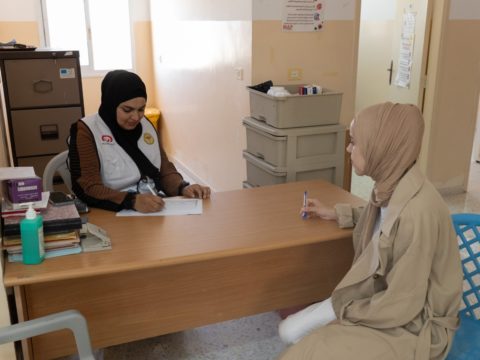
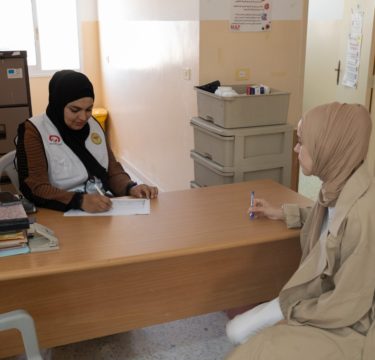
Over 300,000 Palestinians in the West Bank face a unique healthcare challenge: a lack of access to permanent medical facilities. For these individuals, even minor illnesses can pose significant threats. In response, PCPM-supported mobile clinics and a developing telemedicine advisory service strive to meet their growing needs.
Unfortunately, the security situation in the West Bank continues to deteriorate, isolating many communities in Area C from essential medical services. In response to this, the Polish Center for International Aid has shown a strong dedication to increasing access to and improving the region’s healthcare quality, demonstrating their unwavering commitment to the cause.
What is Area C?
Under the Israeli-Palestinian agreements, the Palestinian Authority was established, governing the West Bank and Gaza Strip. These territories were divided into three areas: Area A, encompassing larger West Bank cities and the Gaza Strip; Area B, Arab settlements under Israeli military control; and Area C, Israeli settlements under full Israeli control, along with strategic locations. Despite being primarily designated for Israeli settlers, over 300,000 Palestinians reside in Area C, making them the primary beneficiaries of the Polish Center for International Aid’s efforts.
Mobile Clinics
“Since 2021, we’ve been supporting mobile clinics in 32 communities across the Jenin and Hebron districts of the West Bank. Residents in these regions face immense barriers to healthcare. No nearby clinics or hospitals exist, and traveling to cities is often impossible. Our mobile clinic teams include an internist, gynecologist, laboratory technician, and specialist, providing residents access to primary and specialized care, prenatal check-ups, and screening for non-communicable diseases,” project coordinator Ewa Jakutajć explains.
The clinics provided over 3,000 medical consultations in July and August, double the previous assistance. This significant impact underscores the importance of the work being done. Due to the ongoing conflict between Hamas and Israel, the clinics operate under increasingly challenging conditions, adapting to the constantly evolving situation.
“We visit places that no other medical organizations reach. Many people live in these villages, and there are as many challenges as there are residents. For example, we recently discovered that diseases were caused by water contamination. Fortunately, we were able to diagnose the problem. We informed the local community about the water issue. We explained that the water needs to be purified, the well replaced, and chlorine added,” says Dr. Ahamad Janak.
Doctors provided appropriate medications in Al-Khalil. Most importantly, they conducted training on general health practices, food storage, and meal preparation.
Education and Prevention
The mobile clinic and its staff visit the town once a week. PCPM and its partner, the Palestinian Medical Relief Society, are trying to increase the frequency, but they will never be in the town 24 hours a day. Therefore, volunteer groups are crucial, where residents learn to provide first aid.
“I greatly benefited from PCPM’s help, and we conducted many training sessions in the clinic. Importantly, we also organized many events outside the clinic. We visited schools and held classes with children. The children love it and often laugh during these classes,” says Ahlam Musa Farajat.
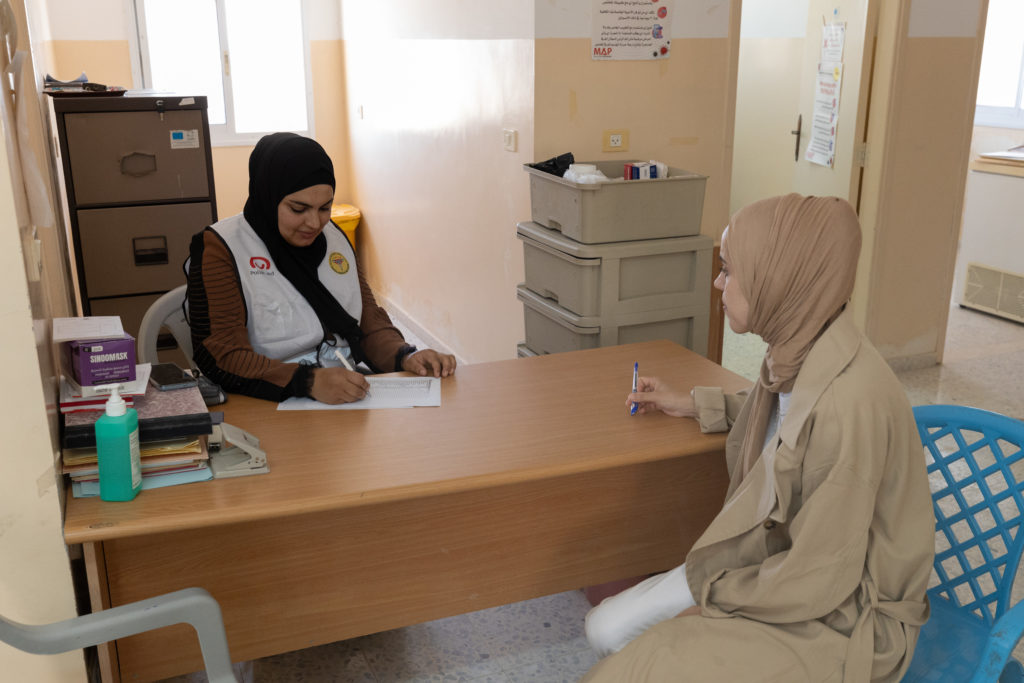
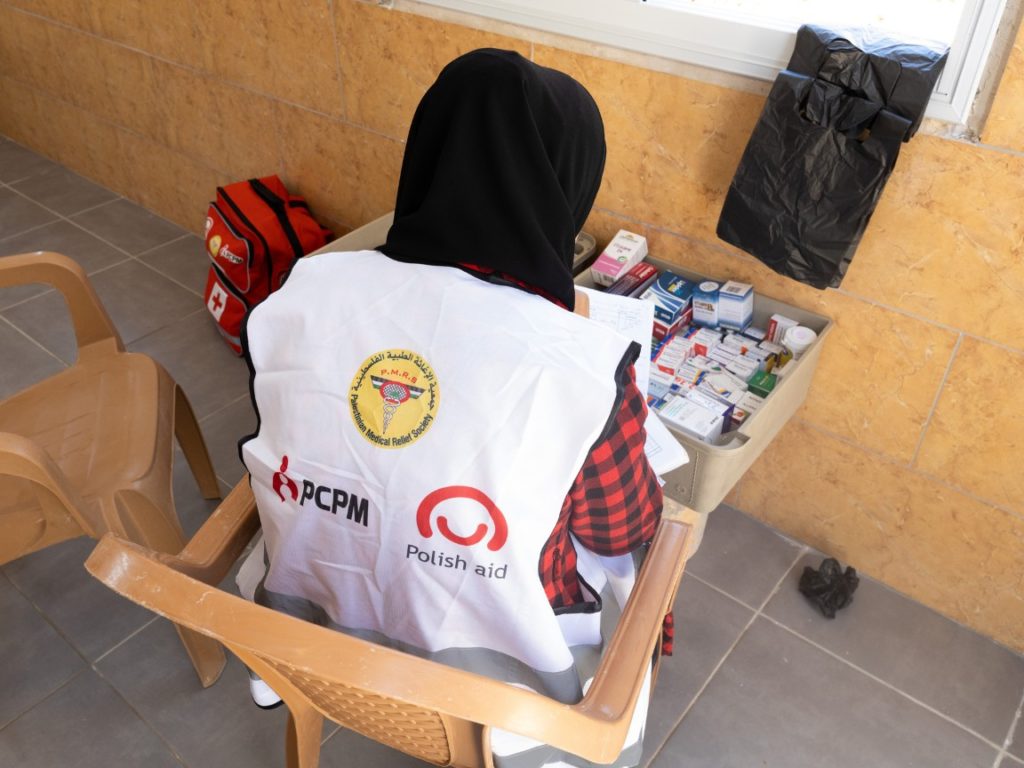

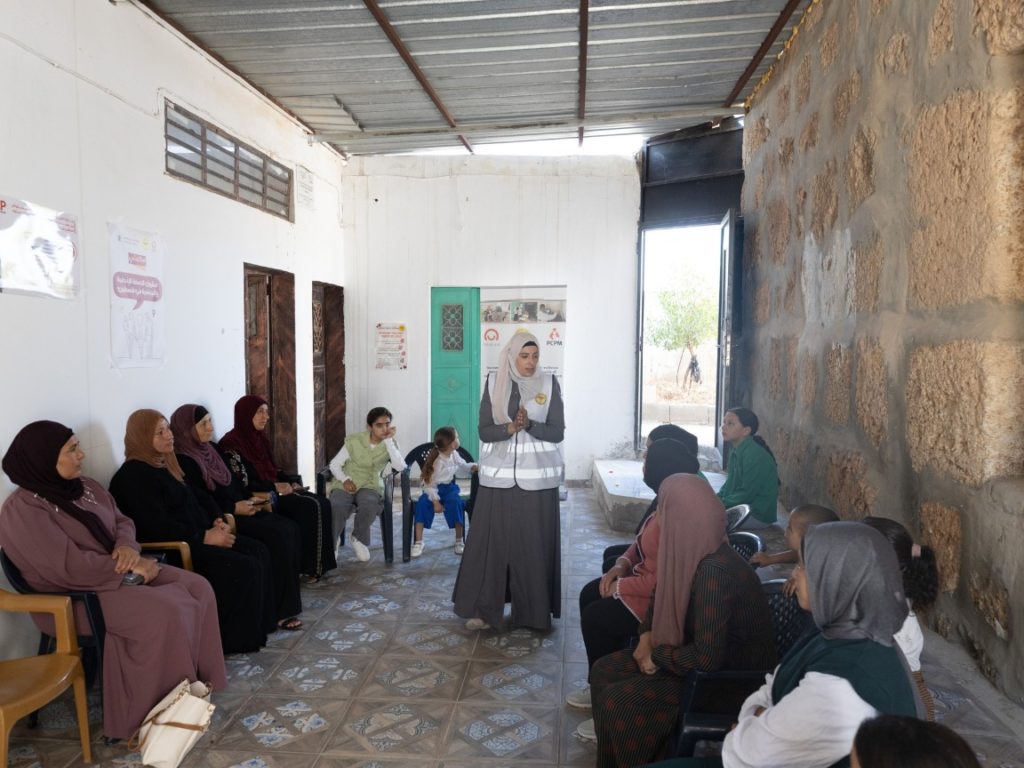
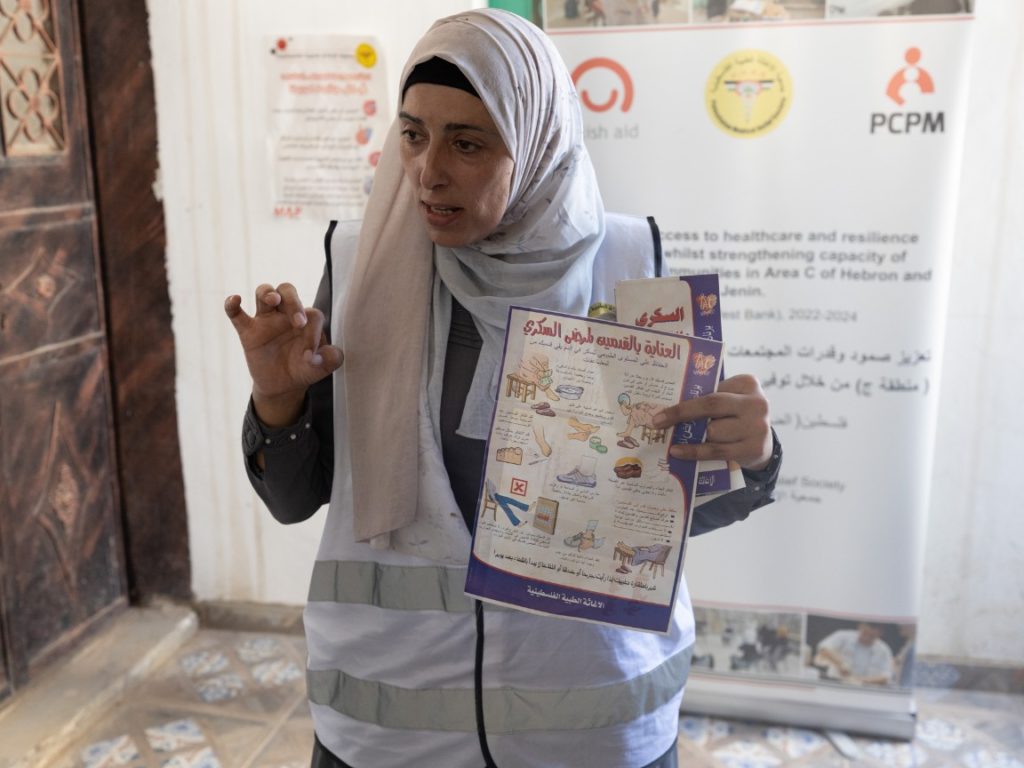
The school training sessions were also very enriching for her. “I learned how to interact with children. Additionally, we organized activities for the elderly, which was also a challenge,” added Ahlam.
As part of the project implemented from 2022 to 2024, PCPM and its partner organization have already created 36 volunteer groups that provide daily assistance in emergencies.
In response to the needs arising from the deteriorating situation in the West Bank, PCPM has also started developing a specialized training program for mobile clinic staff in pre-hospital emergency medicine.
Telemedicine
Thanks to the Polish aid project launched this year, residents of towns between the wall and the border can access telemedicine consultations. At the beginning of 2025, PCPM and its local partner will launch a system that will be available seven days a week for twelve hours a day. The scope of assistance will include basic medical care and gynecology.
“In total, we plan to open telemedicine clinics in 7 regions of the West Bank. This will significantly improve the quality of medical services in Palestine,” says Ewa Jakutajć.
